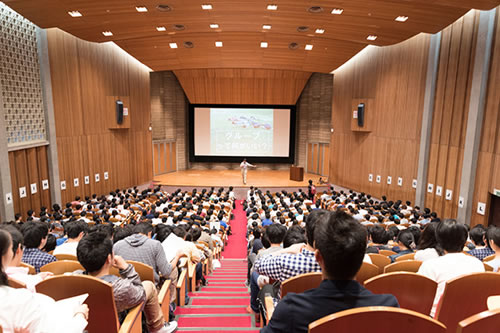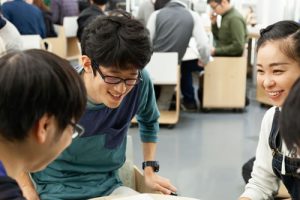The GSA program offers three paths — GSA Facilitator (GSA-F) and GSA Reviewer (GSA-R) through activities in the Institute for Liberal Arts (ILA), and GSA Developer (GSA-D) through activities in the Online Education Development Office (OEDO). Center for Innovative Teaching and Learning (CITL) confers a certificate upon completion of a GSA program.
- Through activities in ILA
- Through activities in OEDO
- Overview of Associated Courses and Activities
- Certification
Through activities in the Institute for Liberal Arts(ILA)
GSA Facilitator and GSA Reviewer
Students are certified as GSA-F or GSA-R through taking Core Liberal Arts Education courses, namely “Leadership Workshop”, “Peer Review Practicum” and “Advanced Leadership Workshop”
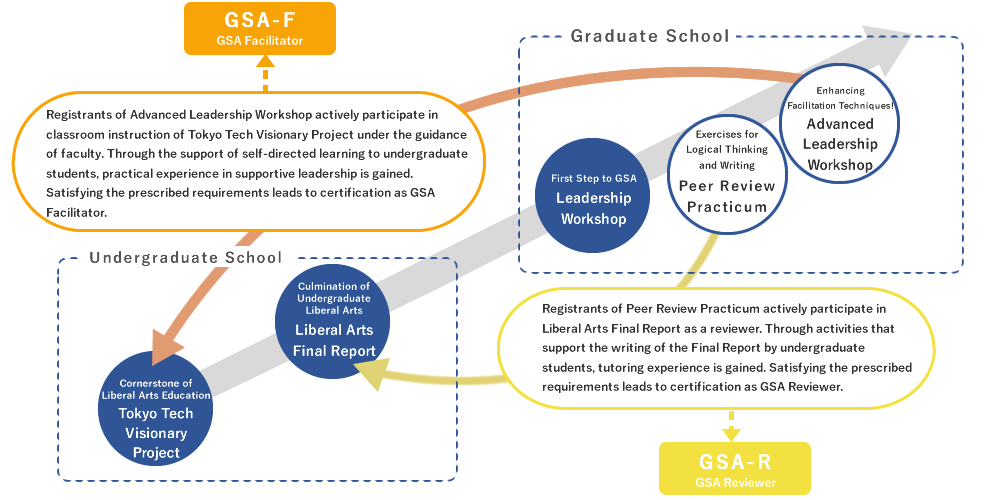
Through activities in the Online Education Development Office(OEDO)
GSA Developer
Students are certified as GSA-D through activities in the Online Education Development Office

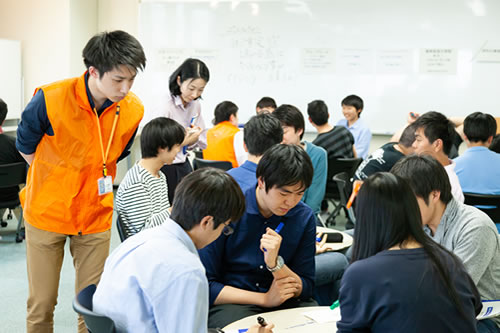
The vest and name tag provide clear identification during participation in undergraduate classes
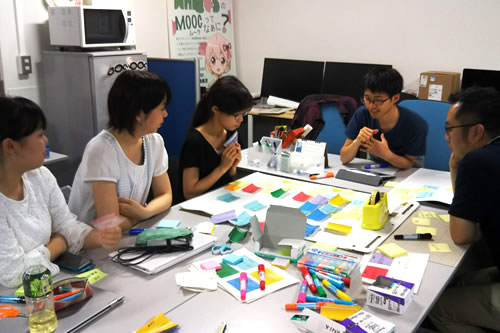
TAs, faculty and staff have meetings at OEDO
Overview of Associated Courses and Activities
Certification
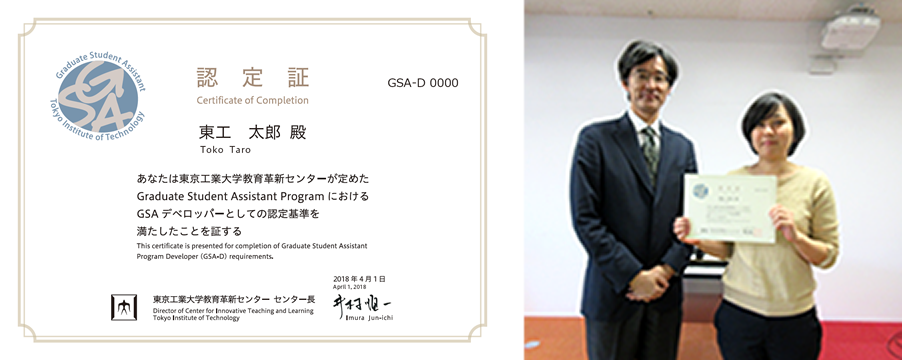 The Center for Innovative Teaching and Learning confers a certificate upon completion of the GSA program.
The Center for Innovative Teaching and Learning confers a certificate upon completion of the GSA program.
The certificate attests to completion of duties as a GSA in the learning community, and represents a token of expectations for the conferee, who will actively utilize their acquired abilities henceforth.
This program receives support from the Ministry of Education, Culture, Sports, Science and Technology, and is based on plans fostered by Tokyo Institute of Technology to establish the Learning Community System for learning among faculty, staff, and students as well as mutual learning among students.






